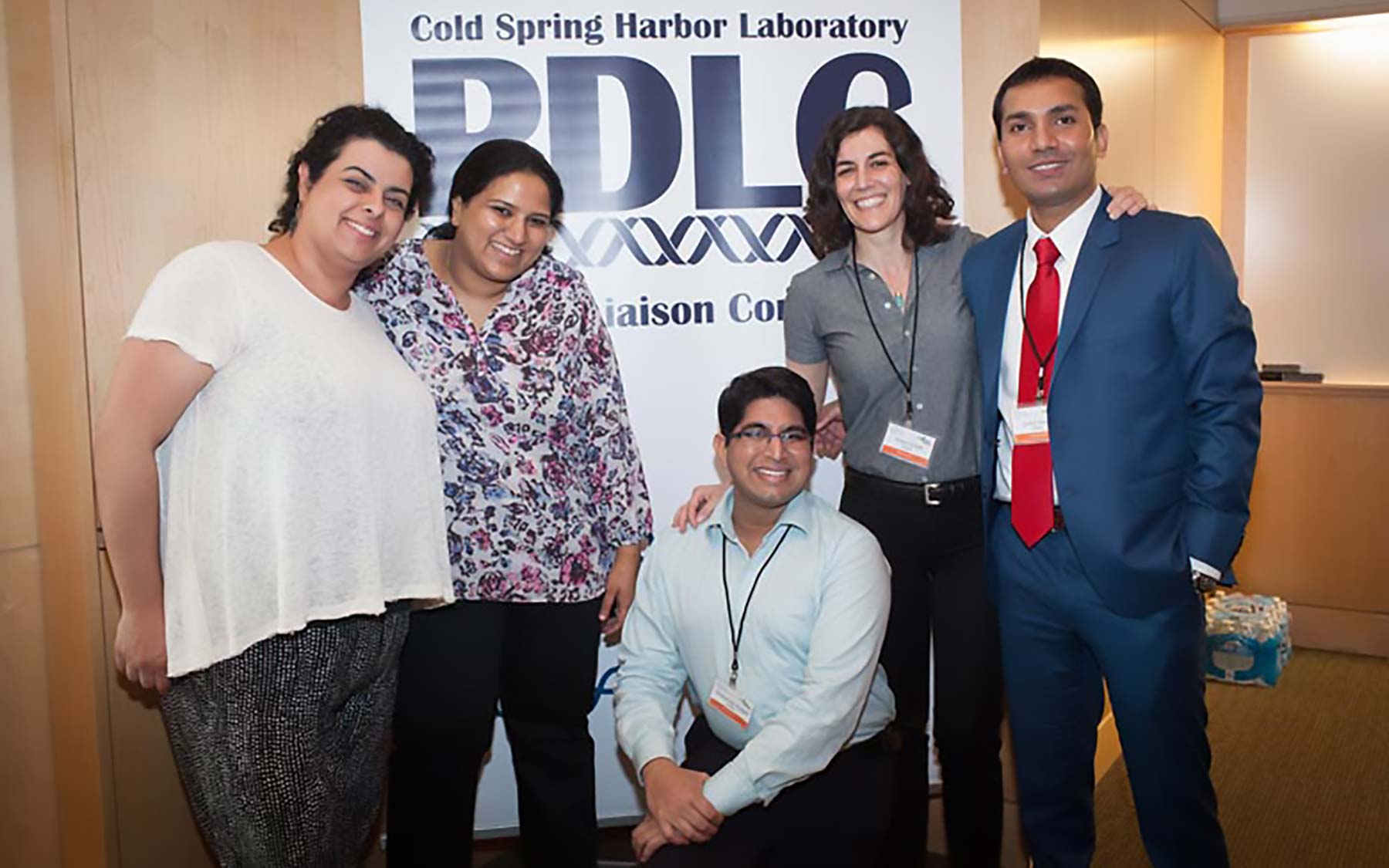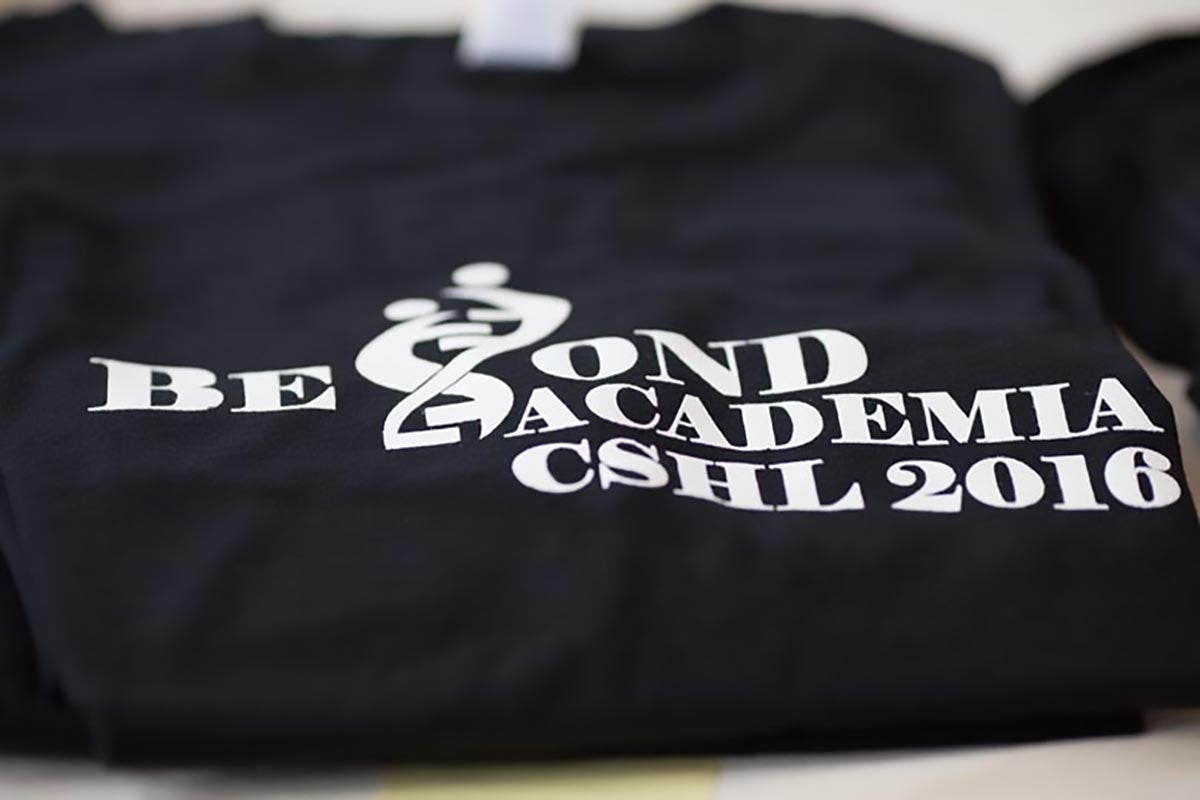This guest post comes to us from Saikat Nandi, a postdoc in the lab of CSHL President Bruce Stillman and an elected member representing the CSHL postdocs. He is also the coordinator of an annual event called CSHL Beyond Academia, held this year on April 22. The theme of this year’s event was “Bench to Bioscience Enterprise.”
Science and business sometimes seem at odds with one another. For me, science has always been something I pursue out of passion—not for profit. But while studying a debilitating disease called Fanconi anemia for my Ph.D. project at Oxford University, I began to wonder: If I had a better understanding of business, could I do more to advance this science and ultimately help people?A cultural gap lies between science and business. Some even see the profit-driven nature of business as counter to the philosophy of science. Regardless of personal views, the fact is that business and science have to work together to turn scientific discoveries into lifesaving drugs and the myriad other products of science that enrich our lives.
But biology, like other areas of science, is a high-risk business. The vast majority of potential products in one notable life science business—drug development—fail. I’ve learned that by positioning myself at the intersection of science and business, rather than focusing strictly on the knowledge-generating goal of academia, I can become more capable of helping businesses invest in candidate drugs that are the most likely to succeed.
That’s just one example of the kinds of opportunities we discussed at “CSHL Beyond Academia.” This annual one-day event aims to broaden knowledge of potential career paths in life sciences for people with advanced degrees who are interested in pursuing a non-research based career.
The panel discussions provided opportunities to learn about career decision strategies and to network with representatives from the bioscience and biotechnology industries. We had senior executives from major companies such as AstraZeneca, BCG, Enzo, IMS, Lilly, Merck, MedImmune, Pfizer, Regeneron, and others.
Here are my five key takeaways from the day, which form a short list of advice for those like me, contemplating careers at the intersection of science and business:
1. What drives science does not drive business.
Whereas curiosity drives science, needs and problems drive business. While science is a quest for general knowledge, business is an effort to provide a particular product or service. Recognizing these fundamental differences between the worlds of business and science is critical to building a strong bridge between them.
2. Building up key skillsets in academic research can open up a variety employment opportunities outside of traditional research careers.
The event gave a snapshot of the different skillsets required to turn scientists into attractive candidates for non-academic jobs, and the various ways to acquire those skills. Multiple avenues can lead to improved chances in the job market, so we ought not limit ourselves to one narrow path.
3. Your career is a journey, not a job.
Pursue your passions, network extensively, set your plan—but be realistic and have a Plan B. It will likely take several steps for you to reach your ultimate goal. That was the take-home message from keynote speaker Michael Gutch, Executive Director of Corporate Development at AstraZeneca.
4. A good mentor can help guide you through your exploration of alternatives to academia.
Don’t be afraid to ask someone to be your mentor. Karen Akinsanya, assistant vice president of Business Development and Licensing at Merck emphasized that having a few good mentors early on in her career was extremely valuable as she sought to define in what direction and how far she wanted to go.
5. Getting out and networking could give you access to jobs you might have otherwise missed out on.
Attend career events and other networking sessions. Make an effort to network with people from the job industry your are interested in. According to Matthew Molski, Recruiting Director & Consultant, Boston Consulting Group, there is a very good chance that at least a few of these people know someone who can give you career advice or point you to a job opening.
Beyond Academia is a collaborative effort between Cold Spring Harbor Laboratory Postdoctoral Liaison Committee (PDLC), CSHL Business Development and Technology Transfer, and the Center for Biotechnology (A New York State Center for Advanced Technology). Brookhaven National Laboratory, Stony Brook University, Columbia University, Hofstra University, Feinstein Institute for Medical Research and Northwell Health are institutional partners.

